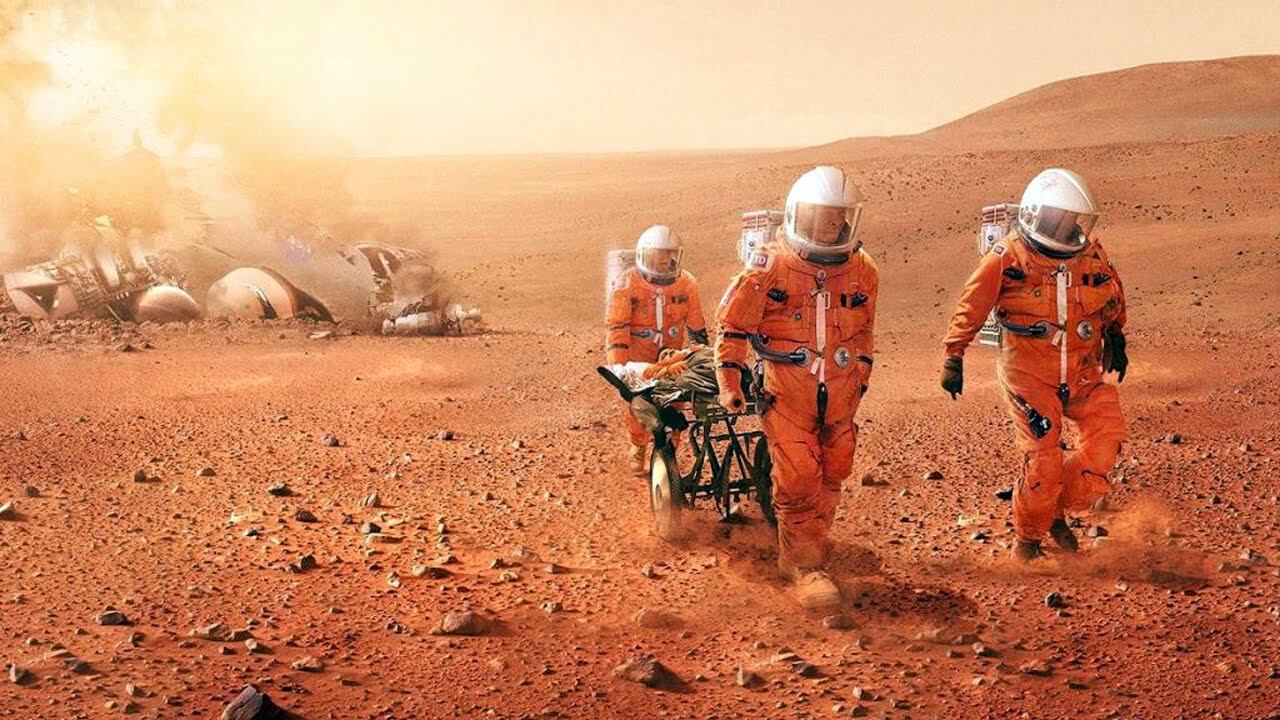
Plans for the colonization of Mars will require the first colonists substantial sacrifices – the complete rejection of procreation and any sexual relations. Because of this, oddly enough, will depend on the survival of the entire team, according to a paper published in the journal Futures.
“Of course, the existence of Autonomous colonies on Mars would be impossible without the possibility of procreation. However, the attempt to carry out this action will lead to mass almost insoluble problem,” write Rafael Marquez of the National laboratory of Biosciences in Campinas (Brazil) and his colleagues.
Experts in different areas of the space are confident that within the next 20 years to begin colonization of the Solar system. The starting point for this will serve as the Moon and Mars. In 2016 Elon Musk, CEO of SpaceX, told the world about his ambitious plans for the colonization of Mars, in which he plans to create super-heavy rocket, and an entire fleet of thousands of reusable interplanetary ships that will be delivered to the end of the century on Mars about a million people.
The main goal of this entire process, the definition of the Mask is to create an independent Land, and the Autonomous cities on Mars, which will provide for himself the necessities of life and will be a full society, not inferior to the community of people on Earth.
Marquez and his colleagues wondered how this is possible in the current situation, taking into account not only the possible technological barriers to the colonization of Mars, but the biological consequences of life on another planet.
High level of radiation is considered to be one of the main obstacles to manned missions to Mars. Five years ago, data from the Autonomous Mars laboratory “Curiosity”, collected during the flight to the red planet, revealed that while travelling a person can get a dose of radiation comparable to fatal. It was later revealed that the exposure of the surface of Mars was almost the same as in space.
The authors agree with the conclusions of previous studies and suggests that the radiation is the main enemy of the first Martian colonists. Despite the potential protection of the colonies from ionizing radiation, it will interfere with the first residents of Mars to extract resources, to explore the planet and to virtually any activity on the red planet.
Particularly strong radiation and the lack of the usual gravity on Mars will affect the life of pregnant women whose immune system is depressed during gestation. This dangerous combination can simultaneously contribute both to the onset of developmental defects in the child and increase the chance to get cancer or die from infections for the mother.
This problem will be superimposed on another important aspect of life on the red planet — a very large resource constraints. Unlike Earth, the inhabitants of the Martian colony just can’t afford to be completely humane and life support to terminally ill people or children with birth defects.
“The humanist idea that human life is the highest value, will not work on Mars. Adverse living conditions and small population sizes of the colonists will make the interests of the collective higher priority than the welfare or life of certain individuals,” scientists say.
Life on Mars may force the authorities of the colony to introduce the system of compulsory genetic checks, which will assess the ability of individual couples to produce healthy offspring. It is possible that in some cases the team will be completely prohibited the media particularly unfavorable mutations to procreate and to enter into a relationship with the opposite sex.
The problem, researchers believe, will be solved only after the issue is resolved the level of protection required against radiation. This can be achieved is by the use of technology, covering the entire planet with radiation shield and modifying the DNA of the colonists, making them more resistant to the action of cosmic rays and high-energy photons. After you have solved these problems, humanity can become “interplanetary species”, as dreamed of Elon Musk and the late Stephen Hawking, conclude the authors.
The first colonists of Mars will have to give up sex and offspring
Nikolai Khizhnyak